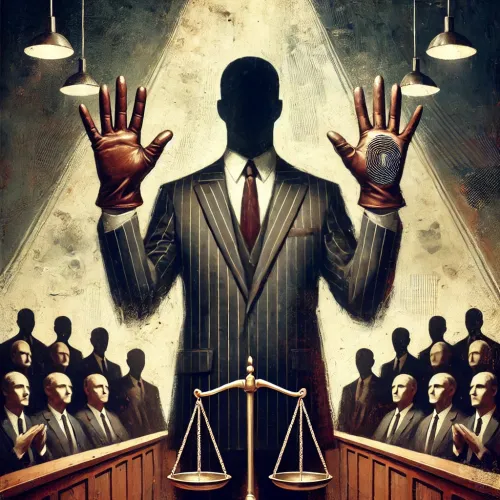In the annals of jury nullification, few cases are as controversial or instructive as that of Laura Kriho. In 1996, Kriho, a resident of Colorado, found herself at the center of a legal firestorm after serving on the jury for a drug possession trial. Her refusal to convict based on her moral objections to drug laws ignited debates about the role of jurors, the limits of judicial authority, and the principle of jury nullification.
The case began when a young woman in Gilpin County was charged with possession of methamphetamine. During deliberations, Kriho raised concerns about the severity of the charges and the potential consequences of a conviction. She argued that the defendant’s personal circumstances and the broader context of drug laws warranted leniency. Kriho’s stance led to a deadlocked jury, preventing a unanimous guilty verdict.
Following the trial, the court launched an investigation into Kriho’s conduct. Prosecutors accused her of withholding information during jury selection, particularly her prior activism against drug laws and her philosophical objections to their enforcement. They argued that her failure to disclose this information amounted to misconduct and sought to hold her in contempt of court.
The contempt charges against Kriho raised fundamental questions about the jury system. At the heart of the case was the principle of jury nullification—the right of jurors to refuse to convict if they believe a law is unjust or improperly applied. Critics of Kriho’s actions claimed that she had violated her duty to act impartially, undermining the integrity of the legal process. Supporters, however, viewed her as a principled juror exercising her moral autonomy in the face of an oppressive system.
Kriho’s case became a rallying point for advocates of jury nullification. Organizations like the Fully Informed Jury Association (FIJA) championed her cause, arguing that jurors have a constitutional right to judge both the facts of a case and the fairness of the law itself. They contended that punishing Kriho for her views would set a dangerous precedent, discouraging jurors from exercising independent judgment and reducing them to mere enforcers of the state’s will.
The legal proceedings against Kriho were highly contentious. In 1997, she was convicted of contempt of court for failing to disclose her views during jury selection. However, her conviction was overturned on appeal. The appellate court found that the prosecution’s inquiry into her deliberations violated the confidentiality of the jury room—a cornerstone of the jury system designed to protect the independence of jurors.
The Kriho case underscored the delicate balance between the legal obligation of jurors to apply the law as instructed and their moral responsibility to act according to conscience. It highlighted the tension between the expectations of impartiality and the reality that jurors bring their values, beliefs, and experiences to the deliberation process. By challenging the application of drug laws, Kriho drew attention to broader issues of fairness and proportionality in the criminal justice system.
Her case also illuminated the challenges facing jury nullification in contemporary legal systems. While nullification is a well-established principle, courts rarely acknowledge it openly, and jurors are typically instructed to apply the law as given. Efforts to inform jurors of their right to nullify are often met with resistance, as many judges fear it could lead to inconsistent or arbitrary verdicts. The Kriho case demonstrated the friction between this judicial caution and the enduring power of jurors to act as a check on government authority.
Kriho’s actions and the subsequent legal battle left a lasting impact. They sparked national conversations about the role of jurors in a democratic society and the limits of judicial control over jury deliberations. Her defiance served as a reminder that the jury system, at its core, is not just a mechanism for enforcing laws but a safeguard of individual liberties and a reflection of community values.
Today, Laura Kriho’s case remains a touchstone for discussions about jury nullification. It underscores the vital role of jurors as independent arbiters who can challenge laws that fail to serve justice. While controversial, her stand exemplified the principle that justice requires more than strict adherence to legal codes—it demands the courage to question and resist when the law conflicts with fundamental moral principles.
In a legal system that often prioritizes order over conscience, Kriho’s case is a powerful testament to the enduring importance of jury nullification. It reminds us that jurors are not merely instruments of the state but active participants in the pursuit of justice, capable of shaping the law through their verdicts. By standing firm in her convictions, Kriho reinforced the idea that true justice is rooted not only in law but in the conscience of the people.




